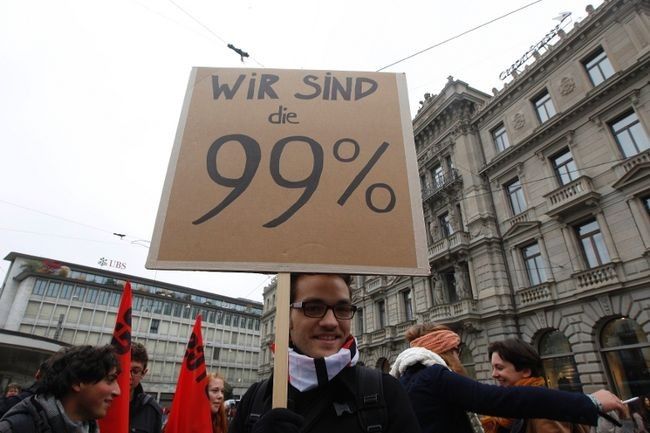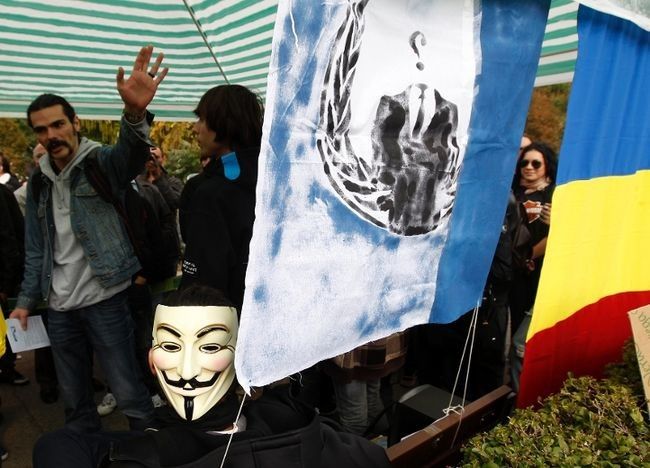Occupy Wall Street: A Look at the Global Movement [SLIDESHOW]
The Occupy Wall Street movement is growing on a global scale.
Beginning in New York's financial district last month, demonstrations have spread across the map to cities such as London, Rome, Hong Kong, and Seoul.
Saturday marked a day of rage in revolt against economic injustice. People protested in 950 cities in 82 countries.
In Rome, chaos erupted. Protests turned violent. Hooded, angry protesters raced through the streets, burning cars and vandalizing banks. MSNBC reported it is some of the worst violence the Italian capital has had in years.
Bikya Masr News reports the city has turned into a war zone.
Aside from the darker strategies of some demonstrators, others are peaceful and happy to be part of a larger entity fighting for change.
What's exciting about what's happening is a sense of international solidarity, said Ben Walker, a college professor in England. He went with tent in hand to the London Stock Exchange with plans of camping overnight, according to The Washington Post.
A reported 4,000 individuals showed up for the London marches.
In Toyko, protesters demonstrated peacefully, alongside the elderly and children.
In New York, where it all began, protesters marched on Saturday to a rally in Times Square. They banged drums to the now-familiar chants: We got sold out, banks got bailed out and All day, all week, occupy Wall Street. Individuals are still camping out in downtown New York's Zuccotti Park.
In the midst of the worldwide mass development, some are still very perplexed as to what the exact message is. What do these Occupy Wall Streeters hope to achieve? What exactly are they out there marching (or fighting) for?
Erin Bohanan wrote to The New York Times saying: As a student of political science, I find that the Occupy Wall Street protests are missing a political window of opportunity. The absence of clear leaders prevents coordination with people who could actually help bring about political change. Having a large mass of unidentified people discussing their concerns is a great blog or Tumblr technique, but in the practical political arena it just lends itself to confusion and the lack of a clear message.


















© Copyright IBTimes 2024. All rights reserved.











